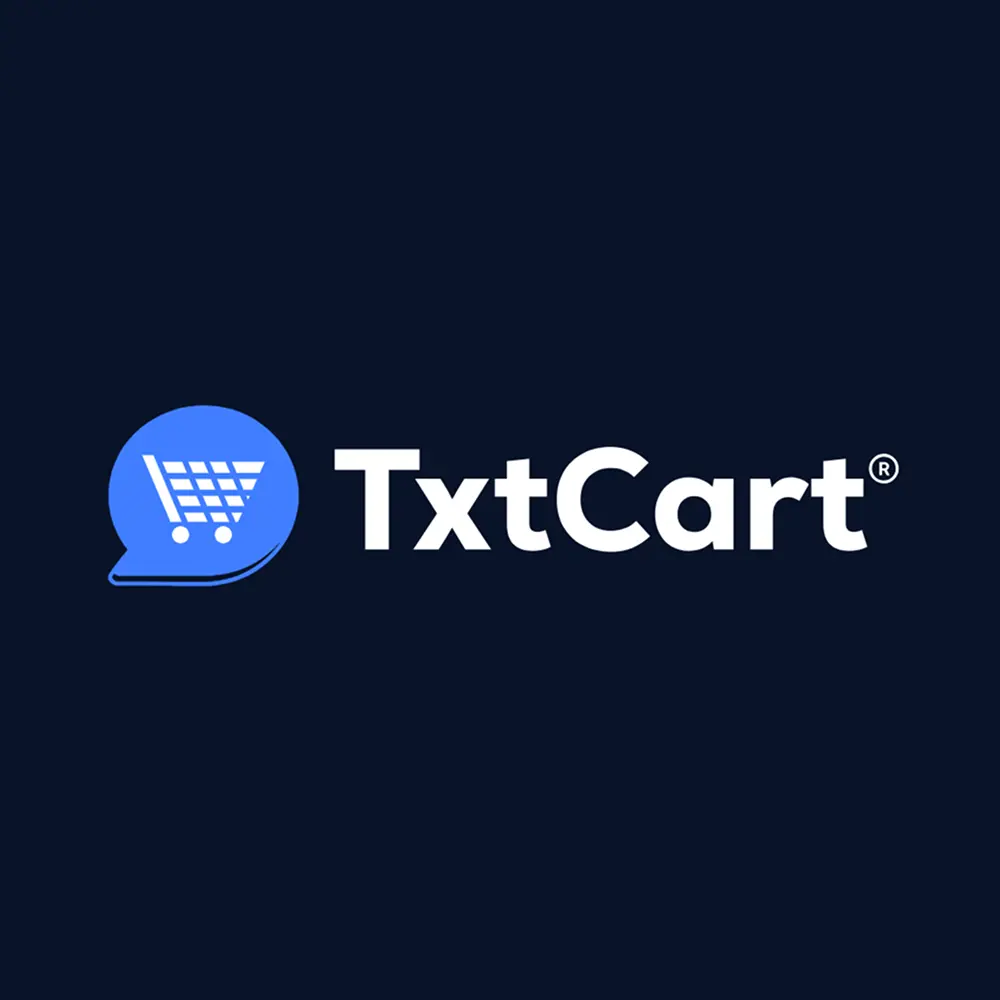E-commerce tools are comprehensive software solutions designed to facilitate various aspects of online retail operations for direct-to-consumer (DTC) brands. These tools cover a wide range of functionalities, including website creation and management, shopping cart integration, payment processing, inventory management, and customer service. They provide an all-in-one platform to manage online sales, streamlining the process from product listing to order fulfillment.
For DTC brands, e-commerce tools are indispensable. They simplify the complexities of online retail, allowing brands to focus on product development and marketing. These tools enable efficient management of digital storefronts, ensuring a smooth and satisfying shopping experience for customers. With features like analytics and SEO optimization, they also help brands in understanding customer behavior and improving their online presence.
In this category, Shopify and WooCommerce stand out. Shopify is popular for its user-friendly interface and extensive range of features, catering to both small startups and large enterprises. Its ease of setup and scalability make it a go-to choice for many DTC brands. WooCommerce, a plugin for WordPress, is known for its flexibility and customization options, appealing to brands looking for a tailored e-commerce solution. Both Shopify and WooCommerce are favored for their robust capabilities and reliability, making them essential tools for successful e-commerce operations.
To get started in eCommerce you need a robust infrastructure. Shopify provides the most popular solution out there, but others likes WooCommerce are still powering powerful stores. Also check out the different tools in the headless space like Swell that might be worth considering.


The Snapchat Ads platform connects businesses with a vast and diverse audience, reaching 900 million monthly active users globally. It effectively targets younger demographics, with 75% of 13 to 34-year-olds in 25 countries actively using Snapchat. The platform utilizes innovative ad formats and advanced targeting to engage this key demographic, maximizing advertisers' impact and reach.


Aftersell is a no-code post-purchase upsell and revenue optimization tool that helps Shopify brands increase average order value (AOV) by up to 30%. Aftersell lets you create one-click upsell and downsell offers right after checkout — no payment re-entry required. You can also customize thank-you pages with reviews, FAQs, and cross-sells, while unlocking new monetization opportunities through Rokt Pay+ and Rokt Thanks. Launch optimized post-purchase funnels in minutes with Smart Funnels powered by Rokt AI, which automatically delivers the most relevant offers to every shopper — helping brands boost AOV, profit, and customer satisfaction with less effort.


Chargeflow is a fully automated chargeback management solution that enables businesses to scale and increase profitability without fighting time-consuming disputes. Our AI-driven evidence generator builds custom-made dispute evidence that maximizes your chargeback dispute win rate and submits it on your behalf. To get your free 30 days of chargeback management, enter code 1800DTC in your dashboard settings.


DaVinci Commerce empowers brands to elevate their retail media strategies with cutting-edge artificial intelligence. The platform empowers brands to launch creative-led display, video, social, and CTV campaigns across multiple retail media networks- in under five minutes. It offers a single workflow with built-in creative templates and clear, easy-to-use analytics dashboards.


EcoEnclose provides sustainable packaging to forward-thinking businesses who ship, box, pouch, wrap, and tape – helping them minimize the environmental impact of their packaging. We are an extension of your procurement team, including hands-on project management, artwork services, quality control, and compliance checks at every step, to make your packaging change a worry-free and easy sustainability win.


noryX is an AI growth companion for D2C founders and small teams. It optimizes inventory and automates marketing, enabling teams to stay agile and focus on their core product. It delivers actionable growth strategies, predicts inventory needs to avoid stockouts and overstock, and automates SEO tasks like meta tags, alt text, and content creation—saving time and boosting performance.


Consio helps e-commerce teams convert more over the phone. Both inbound (prospects who call from the product page or checkout) and outbound (recovering abandoned carts, hot leads, VIPs). Launch targeted campaigns with a power dialer and voicemail drops, while our AI Agent immediately answers incoming calls, handles FAQs, qualifies leads, schedules appointments, and routes them to the right advisor with full context. Native Shopify & Klaviyo integrations make setup and attribution seamless, with impact tracked from call to sale.


Discount Kit gives you the tools you need to super charge your store promotions. Extra discount types provide more ways to express your sales campaign. App components put discount information right where it's needed most to entice shoppers. A product volume discount and tiered pricing table directly on the product page encourages higher order values on every purchase.


3PL Hub is a 3PL agnostic consultancy that specializes in 3PL RFPs, 3PL matchmaking and analysis for eCommerce brands. We turn Shopify data into extensive logistics profiles that can be shared with 3PLs. Our tools have been created for eCommerce brands to compare 3PLs by SLAs, experience, technology, location/s, and pricing.


Orbe is a geolocation app for Shopify stores. Seamlessly integrating with Shopify Markets, multiple expansion stores or Global-e setups, Orbe automatically detects customers' IP locations and browser languages. It then recommends the appropriate version of your store through customizable welcome popups in multiple languages, ensuring a personalized local shopping experience. This helps merchants display the right products, prices, language, and currency by country, ultimately boosting international sales.


Fuego.io is building the world’s most customizable and extensible mobile commerce platform. Powered by the latest breakthroughs in Generative AI, we allow you to turn your existing Shopify store into a fully native and customizable mobile app packed with social commerce features in seconds.


Platter is a tech-enabled agency that helps Shopify bands build storefronts that make more money. Unlike traditional design & development agencies, Platter utilized its world-class in-house theme to build storefronts that convert better, are easier to manage, and cost less to maintain. Currently powering 150+ of the fastest growing brands, including Ministry of Supply, Gainful, Wild Earth, Neuro Gum, and more.


Mobile apps built for your Superfans. Your best customers deserve more than just an average experience. Superfans.io builds mobile apps that give your best customers the treatment they actually deserve — VIP access, tease windows, dynamic screens, app-only exclusives, and loyalty perks that make them stay. No success fees and no gated features. One plan with all features and unlimited scale that's built for customers who matter most. Superfans.io integrates deeply with your entire tech stack to turn launches into exclusive experiences that are controlled, personal, and unforgettable.


FERMÀT is a powerful user journey optimization platform that empowers direct-to-consumer brands to create unique, personalized shopping experiences for every customer. Through features like Segmented Shopping, Embeddable Buying, Smart Customization, and Automatic CRO, FERMÀT enables brands to deeply understand their audience, deliver hyper-targeted experiences, and drive continuous optimization - all without extensive development resources.


PostPilot is THE direct mail platform for digitally native brands. Think Klaviyo or Meta for direct mail. PostPilot's full funnel solution helps you increase retention & LTV, convert more site visitors into customers, and hyper-target cold prospects by leveraging their industry-leading data and groundbreaking AI targeting. PostPilot makes it fast & easy with native ecom integrations, done-for-you strategy, setup, creative & optimization, plus real-time ROI dashboards. Cut through the digital clutter and beat rising ad costs. 1-800-D2C members receive 15% off their first 3 months of PostPilot! Your mail could be in your customer’s hands by next week.


TxtCart is an AI-native SMS marketing platform built to turn shopper intent into revenue, automatically and at scale. Trusted by over 3,500 Shopify brands, TxtCart combines conversational AI, automation, and lifecycle messaging to drive higher conversion rates across the entire customer journey. From abandoned checkouts to post-purchase engagement and campaigns, TxtCart helps brands capture more subscribers, send smarter messages, and convert customers through natural, human-like conversations. With built-in compliance, deep segmentation, and real-time insights, TxtCart makes SMS one of the most profitable and predictable channels in your marketing stack—without adding operational overhead. Start with a 30-Day Free Trial (exclusive to 1-800-D2C) and experience what AI-powered SMS was meant to feel like.


Shopify is a commerce platform that allows anyone to set up an online store and sell their products. It's the go-to eCommerce platform for young direct-to-consumer brands. Its ease of use and setup is what's most attractive to merchants, but also the incredibly vast Shopify app store.

Webflow commerce is becoming a serious competitor to Shopify. They also boast the ability to create a fully functioning website without touching code, but in addition to that - they pride themselves on giving you the ability to create unique commerce experiences for your customers.

Tapcart has been called the "Shopify for mobile apps" and it's drag-and-drop platform let brands customize their mobile app including layout, product detail pages, integrate checkout options, include product reviews, and even add other branded content (i.e., blogs, lookbooks, videos, live video, and more). Tapcart also lets merchants sync directly from Shopify in realtime so inventory, products, and collection are all up-to-date.

Square Online offers an easy-to-use platform for businesses to create professional eCommerce websites with built-in payment processing and powerful sales tools. Whether you're selling products, services, or digital content, Square helps you manage inventory, fulfill orders, and grow your online presence—all in one place.

Canal’s a tool that effectively turns your D2C business into a marketplace. It enables you as a merchant to sell other brands’ goods on your website. The best part is that you, as a brand, don’t hold any of the inventory. Canal connects to your partners brands’ warehouses so you don’t have to worry about shipping & handling.

We make affiliate programs simple by providing an all-in-one affiliate marketing platform designed to save time and reduce complexity. Auto-pay removes the burden of thinking about taxes between you and your affiliates, while our integration with customer accounts allows affiliates to register and sign in directly to your store.

Candy Rack is the ultimate one-click upsell app for Shopify merchants who are serious about increasing their AOVs and CVRs. Brands leveraging Candy Rack across their store experience can see sales boost by over over 30%. Candy Rack allows merchants to offer upsells and cross-sells during the purchase flow, including checkout (post-purchase) upsells. The offers are displayed as a simple pop-up.

Bloomreach is the world’s #1 Commerce Experience Cloud, empowering brands to deliver customer journeys so personalized, they feel like magic. It offers a suite of products that drive true personalization and digital commerce growth. Together, these solutions combine the power of unified customer and product data with the speed and scale of AI-optimization, enabling revenue-driving digital commerce experiences that convert on any channel and every journey.

Turn your Shopify store into a mobile app that’s uniquely crafted for your brand and expertly managed for success. Venn Apps empowers Shopify’s leading brands to design, launch and run exceptional mobile apps. With extensive design flexibility, powerful functionality and proven expertise in driving app success, we’re the trusted mobile app partner for top brands including Anine Bing, Represent, Toteme, AYBL, Motel and more.

If you'e a D2C or ecomm brand using Shopify you need a feed management tool (like Flexify) to generate a feed file. These feed files are essential for running ads on Meta, Snapchat, Tiktok, and a host of other channels. Instead of connecting your store using 3rd party apps to generate a feed file, you can now use Marpipe to directly integrate with Shopify. This means: • No need to pay extra for 3rd party apps • You can Shopify revenue data to find and build better performing product sets (no more wasted ad spend on low AOV products) • Easily Import Shopify Metafields: Access the full breadth of product info (think ratings, review counts, special images) from your PDP (more info = more personalized ads) • Quicker Feed Sync Times

Yotpo Loyalty & Referrals is the most experienced provider, powered by e-commerce experts. Yotpo Loyalty is agile and flexible, fosters customer journey, comes with white glove service for support and strategy, and offers robust reporting so e-comm marketers can track and iterate their programs.

ShipDudes is a trusted 3PL partner, providing e-commerce brands with reliable, efficient, and scalable fulfillment solutions. We specialize in direct-to-consumer (DTC) and business-to-business (B2B) logistics, ensuring fast and accurate order processing, inventory management, and shipping. Our nationwide fulfillment network allows brands to reach customers quickly, while our dedicated team ensures a hands-on, personalized approach to logistics. At ShipDudes, we believe that great fulfillment goes beyond just moving packages—it’s about delivering a seamless experience that supports your brand’s growth. Whether you need streamlined warehouse operations, customized packaging, or real-time tracking, we provide the expertise and technology to make shipping hassle-free. Partner with ShipDudes and let us handle the logistics while you focus on scaling your business.

Spocket is the leading dropshipping platform featuring high-quality products primarily from the US and Europe. It integrates seamlessly with Shopify, WooCommerce, and other major platforms. With fast shipping, full automation, and one-click product import, Spocket empowers entrepreneurs to launch and scale their online stores with ease and efficiency.

AliDrop is a powerful dropshipping tool that integrates with Shopify, WooCommerce, and BigCommerce, allowing you to import and sell products from AliExpress, Alibaba, and Temu in one click. It offers automated order fulfillment, branded invoicing, and fast shipping, making it easy for entrepreneurs to launch and scale their online stores.

Wholesale Pricing Discount (WPD) is a powerful Shopify app that helps merchants create a seamless wholesale pricing experience within their existing store. With WPD, you can offer custom pricing, volume discounts, net payment terms, and exclusive B2B discounts—all without needing a separate wholesale store. Trusted by thousands of Shopify merchants, WPD makes it easy to manage wholesale, retail, and VIP customers in one place, boosting sales and streamlining operations.

Unique discount codes are a super smart way to keep customers coming back while avoiding the abuse of leaked discount codes. With our bulk discount code generator, you can create large sets of unique discount codes in Shopify in just a few clicks. Easily generate unlimited unique codes or provide specific ones yourself, then export your codes directly from the app to use in your preferred marketing channel. Don’t waste your time, let the robots do the work!

Seguno helps you get results from email marketing faster. Built exclusively for Shopify, create engaging emails, trigger automated sends, and track your success from one convenient place inside the platform you already know. With best practices baked in and your shop’s data instantly on hand, spend less time worrying about making mistakes and more time on what matters—growing your business... Now, with Back in Stock restock alerts!

BIG Digital Downloads enables you to sell digital products on your Shopify store, allowing customers to download files securely after purchase. Manage and deliver digital content easily, including e-books, software, and media files. Expand your product offerings and cater to digital customers with BIG Digital Downloads’ reliable delivery solutions.

Releasit COD enables you to offer Cash on Delivery (COD) payment options to your Shopify store’s customers. Create customizable COD forms to collect necessary information and streamline the checkout process. Increase your store’s flexibility and cater to customers who prefer COD with Releasit COD’s easy setup.

Buy Me Button allows you to add customizable "Buy Now" buttons to your Shopify store, enabling customers to make quick and easy purchases. Integrate purchase buttons seamlessly into your product pages, blog posts, and other areas of your site. Enhance your store’s sales potential and provide a straightforward buying experience with Buy Me Button’s flexible button options.

EasySell COD Form allows you to offer Cash on Delivery (COD) payment options to your Shopify store’s customers. Create customizable COD forms to collect necessary information and streamline the checkout process. Increase your store’s flexibility and cater to customers who prefer COD with EasySell COD Form’s easy setup.

Subi is an easy-to-use subscription app built specifically for Shopify, allowing merchants to offer products and services on a recurring basis. Designed to turn first-time buyers into loyal customers, Subi encourages repeat orders through flexible discount models and delivery frequency options. Merchants can build sustainable recurring revenue by choosing the subscription setup that fits their business—whether that’s subscribe-and-save plans, memberships, or creative subscription bundles and boxes.


Meet Your 24/7 Online Sales Rep: An AI Assistant That Increase Conversion Rates and Delivers Excellent Customer Service. Juphy AI supports your Shopify store visitors from initial hello to checkout. It expertly handles customer inquiries, informs shoppers about the specifics of your products, and simplifies purchasing decisions with personalized recommendations. Juphy also delivers excellent customer service related to frequently asked questions, including shipping, returns and refunds. It converts website visitors into actual customers and improves customer satisfaction with excellent service on your website, even outside office hours.


Boost your average order value in minutes with Pre and Post Purchase Upsells. Inspire your customers to add related products/ accessories across Product page, Cart and Thank you pages, and increase units per transaction. No order or upsell limits, with transparent fixed pricing, every upsell dollar is yours! On Shopify Plus? You can supercharge your Checkout page with upsells and social proof, and enjoy unmatched Checkout Extensibility support. Watch incremental revenue grow live with our real-time analytics dashboards.